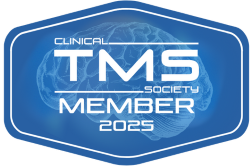
By Adil Yurekli, LCSW, Relief Mental Health in Warren, New Jersey
The International Obsessive-Compulsive Disorder Foundation (IOCDF) defines OCD as follows:
“…a mental health disorder that affects people of all ages and walks of life, and occurs when a person gets caught in a cycle of obsessions and compulsions. Obsessions are unwanted, intrusive thoughts, images, or urges that trigger intensely distressing feelings. Compulsions are behaviors an individual engages in to attempt to get rid of obsessions and/or decrease distress.”
After an initial diagnosis, mental health professionals categorize OCD on a spectrum from mild to moderate to severe. The frequency, intensity, and duration of symptoms determine where any individual case of OCD occurs on the severity spectrum:
Mild OCD:
- People with mild OCD report disruptive and uncomfortable symptoms that take up a small amount of time each day. In most cases, people with mild OCD respond positively to evidence-based support.
Moderate OCD:
- People with moderate OCD report symptoms that are more uncomfortable, disruptive, and more time-consuming than mild OCD symptoms. People with moderate OCD often respond positively to evidence-based support. However, people with moderate OCD often engage in treatment sessions more often and need more time to develop the skills necessary to manage their symptoms, compared to people with mild OCD.
Severe OCD:
- People with severe OCD report symptoms that are extremely uncomfortable, disruptive, and can prevent typical functioning for several hours every day. Some people with severe OCD report managing their symptoms takes up their entire day, almost every day of their lives. Severe OCD may not respond positively to initial, traditional treatment and support, but may require intensive intervention and new, innovative treatment approaches.
A report from the World Health Organization (WHO) once identified severe OCD as “one of the most disabling illnesses by lost income and decreased quality of life.” And now, the WHO identifies “…anxiety disorders, including OCD, as the sixth largest contributor to non-fatal health loss globally.”
About OCD Symptoms: Obsessions and Compulsions
Mental health professionals place symptoms that cause such significant disruption into two categories, which we mention above: obsessions and compulsions.
Obsessions
The IOCDF defines obsessions as:
“…thoughts, images, or impulses that occur over and over again and feel outside of the person’s control.”
In people with obsessive-compulsive disorder (OCD), obsessive thoughts are unwanted and disturbing. Most people with OCD understand their obsessive thoughts are not logical, and emotions like disgust, fear, doubt, and uncertainty often accompany them.
A quick aside: being obsessed with something – like a song, a celebrity, or a new hobby – is not the same as having an obsessive thought associated with OCD. Obsessions related to OCD are unwanted, intrusive, and disrupt life, whereas people with voluntary so-called obsessions choose them, and they don’t disrupt daily life or prevent typical daily functioning.
Obsessions common to people with OCD include:
Contamination Obsessions
People with OCD may fear contact with:
- Bodily fluids
- Dirt
- Germs
- Household chemicals
Violent Obsessions
People with OCD may fear:
- Succumbing to an impulse to harm themselves
- Succumbing to an impulse to harm other people
- Excessive violent images or thoughts in their own mind
Responsibility Obsessions
People with OCD may show excessive concern about:
- Causing a horrible accident
- Harming others through negligence
Perfectionist Obsessions
People with OCD may show significant worry about:
- Evenness or exactness in the organization of personal/household objects
- Knowing or remembering things
- Losing important objects
- Performing all tasks perfectly
- Making any type of mistake, large or small
In addition, people with OCD may display obsessions related to sex, religion/spirituality, morality, sexual/gender identity, relationships, and death.
Compulsions
The IOCDF defines compulsions as:
“…repetitive behaviors or thoughts that a person uses with the intention of neutralizing, counteracting, or making their obsessions go away.”
People with OCD understand their compulsive behavior will only temporarily mitigate their emotional discomfort. However, in the absence of productive coping skills, they act on their compulsions. Compulsions are time-consuming and disrupt/prevent participation in important or essential daily activities.
Compulsions common to people with OCD include:
Washing/Cleaning
People with OCD may spend excessive time:
- Washing hands in a particular way
- Engaged in personal grooming
- Cleaning household objects/items
- Engage in elaborate behaviors to avoid or remove things they consider dirty
Checking
People with OCD may spend significant time and energy:
- Making sure they don’t harm others
- Making sure other people don’t harm themselves
- Ensuring nothing terrible has happened to a loved one
- Confirming they haven’t made any mistakes
Repeating
People with OCD may excessively repeat:
- Typical activities or behaviors, such as getting up/sitting down, opening /closing doors, turning on/off light switches
- Movements, like touching things, blinking, tapping themselves, or itching/scratching
- Any activity in preferred sets, such as doing everything three times, because it feels right
In addition, compulsive behavior in people with OCD may include reviewing events repetitively in their minds, arranging objects until they’re perfect, counting things until they end on a good number, and cancelling or undoing things, i.e. using a good word after using a bad word, in the hopes that the latter will cancel or undo the former.
The Prevalence of OCD
Data from the National Institute of Mental Health (NIMH) shows:
- Around 1.2% of U.S. adults report past-year OCD.
- That’s 2.5 million people
- By gender:
- Females: 1.8%
- Males: 0.5%
- Around 2.3% of U.S. adults report OCD at some point during their lives.
- That’s close to 5 million people
- Among adults with OCD:
- 50.6% report serious impairment.
- 34.8% report moderate impairment
- 14.6% report mild impairment
In addition, it’s important to know the following facts about OCD:
- Average age of onset: 19 years old
- 25% of cases appear before age 14
- 33% of people with OCD report first experiencing symptoms during childhood
- 90% of people with OCD report presence of another mental health diagnosis:
- Mood disorder: 65%
- Impulse-control disorder: 56%
- Substance use disorder: 40%
- Anxiety disorder: 76%
That data teaches us that millions of people in the U.S. have OCD, and that most people with OCD have an additional mental health diagnosis. That’s one of the reasons finding effective, evidence-based treatment for OCD is essential. In the absence of treatment – and the presence of co-occurring disorders – untreated OCD can lead to:
- Isolation/withdrawal from friends and loved ones
- Relationship problems
- Academic problems
- Work problems
- Alcohol/drug use
- Suicidal ideation
- Non-suicidal self-injury (NSSI)
Those are serious issues, and in some cases, they’re life-threatening. However, evidence-based treatment can help people with OCD manage their symptoms and avoid many of those consequences. Effective, evidence-based treatment for OCD includes:
Psychotherapy:
- Cognitive behavioral therapy (CBT). CBT has a strong evidence base of success for people with OCD.
- Exposure Response Therapy (ERP). ERP is a subtype of CBT, and is effective in helping people reduce symptoms of ODCD.
- Eye-Movement Desensitization and Response (EMDR). EMDR is typically associated with treatment for post-traumatic stress disorder (PTSD), but a growing body of evidence suggests it’s also effective in reducing symptoms of OCD.
Medication:
- Specific anti-depressants are FDA-approved for treatment of OCD, including:
- Prozac
- Luvox
- Paxil
- Zoloft
- Anafranil
- Off-label anti-depressants for OCD include:
- Celexa
- Lexapro
- Effexor
- Innovative, new medications for OCD include:
- IV ketamine
- Oral ketamine
Other Techniques:
- Brain stimulation therapies (BST):
- Evidence shows transcranial magnetic stimulation (TMS), a non-invasive BST, can reduce symptoms of treatment-resistant OCD.
That’s critical information for anyone with OCD to understand. Although OCD can be extremely disruptive, and in some cases debilitating, evidence-based treatment provided by licensed, qualified, and experiences mental health professionals can help people with OCD manage their symptoms and live a full and fulfilling life.
Obsessive-Compulsive Disorder (OCD): Finding Help
The International Obsessive-Compulsive Disorder Foundation (IOCDF) website is an excellent clearinghouse for information about OCD and for finding treatment and support for obsessive-compulsive disorder. If you need or someone you know needs treatment, please take advantage of the following resources:
- The IOCDF worldwide therapist finder
- The IOCDF worldwide clinic locator
- Community Support and Treatment Group locator (also IOCDF)
- The Anxiety and Depression Association of America (ADAA) OCD Resource Page
- The American Psychological Association (APA) therapist finder
The most important takeaway from this article is that effective, evidence-based treatment and support for obsessive-compulsive disorder (OCD) is available. For patients diagnosed with OCD, the right treatment delivered by the right provider at the right time can be life-changing.
OCD Treatment at Relief Mental Health
Relief Mental Health is an outpatient provider of transcranial magnetic stimulation (TMS), SPRAVATO® (esketamine), psychiatry/medication management services, and talk therapy for the treatment of depression, obsessive compulsive disorder, anxiety and other mental health diagnoses. For questions or to book an appointment, give us a call or complete our confidential form. A member of our team will reach out within 24 hours.


